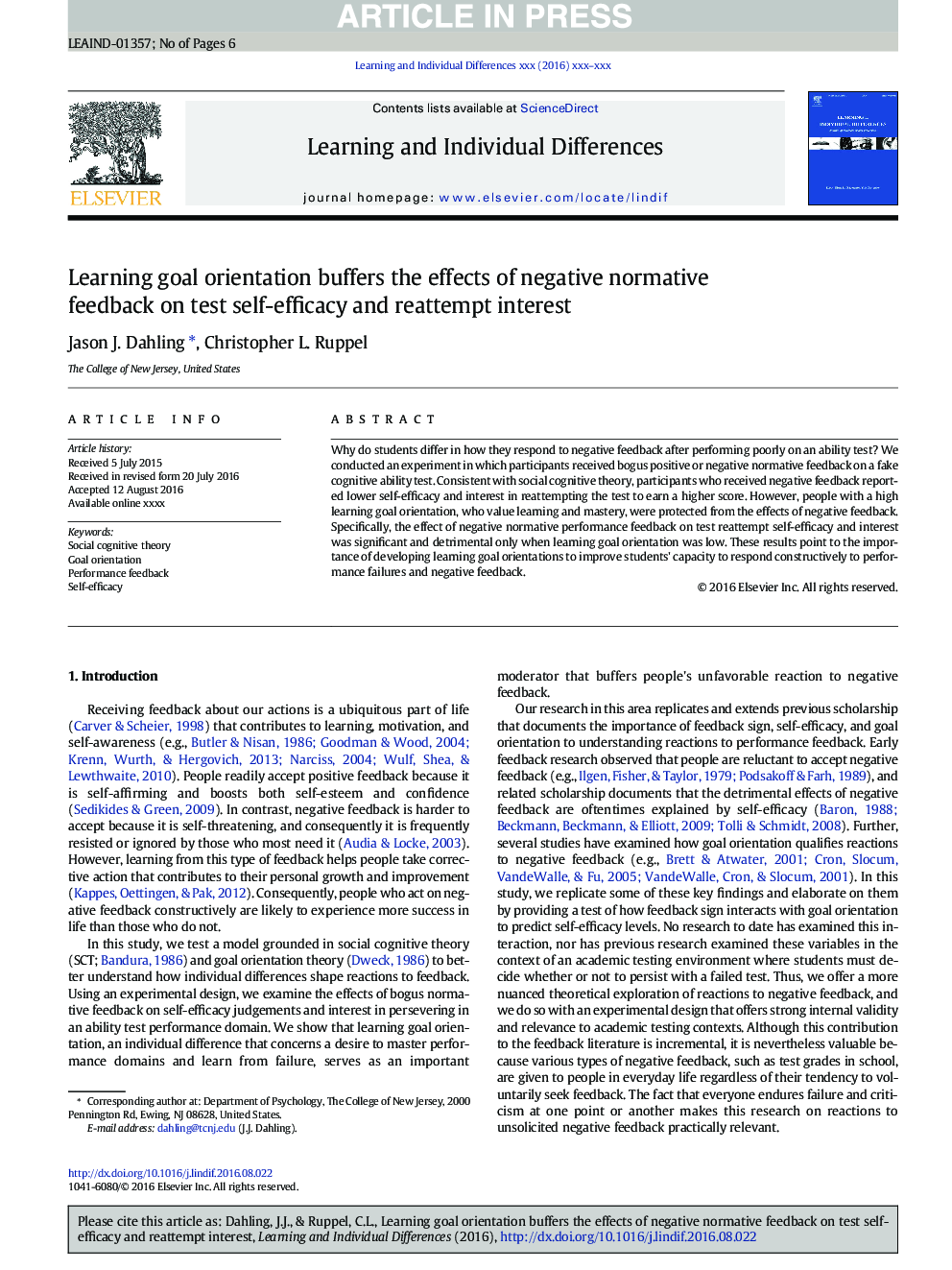| Article ID | Journal | Published Year | Pages | File Type |
|---|---|---|---|---|
| 6844659 | Learning and Individual Differences | 2016 | 6 Pages |
Abstract
Why do students differ in how they respond to negative feedback after performing poorly on an ability test? We conducted an experiment in which participants received bogus positive or negative normative feedback on a fake cognitive ability test. Consistent with social cognitive theory, participants who received negative feedback reported lower self-efficacy and interest in reattempting the test to earn a higher score. However, people with a high learning goal orientation, who value learning and mastery, were protected from the effects of negative feedback. Specifically, the effect of negative normative performance feedback on test reattempt self-efficacy and interest was significant and detrimental only when learning goal orientation was low. These results point to the importance of developing learning goal orientations to improve students' capacity to respond constructively to performance failures and negative feedback.
Related Topics
Social Sciences and Humanities
Psychology
Developmental and Educational Psychology
Authors
Jason J. Dahling, Christopher L. Ruppel,
